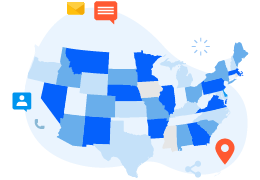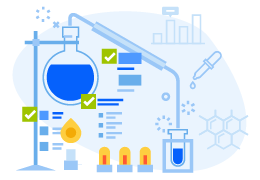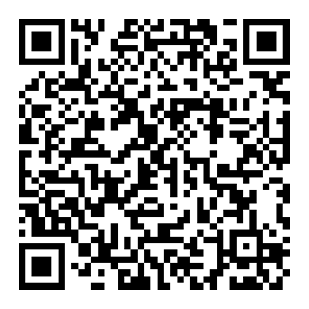听力奥巴马在伊利诺伊大学香槟分校的演讲
注: 由阅读原文观看全程,文本仅供参考。
Speech by Former President Barack Obama at the University of Illinois
September 7, 2018
Hey! Hello, Illinois! I-L-L! I-L-L! I-L-L!
OK. OK. Just checking to see if you’re awake. Please have a seat, everybody.
It is good to be home. It’s good to see corn, beans. I was trying to explain to somebody as we were flying in, that’s corn. That’s beans, they were very impressed at my agricultural knowledge. Please give it up to Amari, once again, for that outstanding introduction.
I have a – I have a bunch of good friends here today, including somebody who I served with, who is one of the finest Senators in the country and we’re lucky to have him, your Senator, Dick Durbin is here.
I also noticed, by the way, former Governor Edgar here, who I haven’t seen in a long time, and somehow he has not aged and I have. It is great to see him.
I want to thank President Killeen and everybody at the U of I system for making it possible for me to be here today. And I am deeply honored at the Paul Douglas Award that is being given to me. He is somebody who set the path for so much outstanding public service here in Illinois.
Now, I want to start by addressing the elephant in the room. I know people are still wondering why I didn’t speak at the 2017 commencement. The student body president sent a very thoughtful invitation, the students made a spiffy video, and when I declined, I hear there was speculation that I was boycotting campus until Antonio’s Pizza reopened. So I want to be clear: I did not take sides in that late-night food debate.
The truth is, after eight years in the White House, I needed to spend time one on one with Michelle if I wanted to stay married. And she says hello, by the way. I also wanted to spend quality time with my daughters, who were suddenly young women on their way out the door. And I should add, by the way, now that I have a daughter in college, I can tell all the students here, your parents suffer. They cry privately. It is brutal.
So please call. Send a text. We need to hear from you, just a little something.
The truth was I was also intent on following a wise American tradition of ex-presidents gracefully exiting the political stage and making room for new voices and new ideas. We have our first president, George Washington, to thank for setting that example.
After he led the colonies to victory as General Washington, there were no constraints on him, really. He was practically a god to those who had followed him into battle. There was no Constitution. There were no democratic norms that guided what he should or could do, and he could have made himself all-powerful. He could have made himself potentially president for life. Instead, he resigned as commander-in-chief and moved back to his country estate. And six years later, he was elected president, but after two terms, he resigned again and rode off into the sunset.
The point Washington made, the point that is essential to American democracy, is that in a government of and by and for the people, there should be no permanent ruling class. There are only citizens, who, through their elected and temporary representatives, determine our course and determine our character.
I’m here today because this is one of those pivotal moments when every one of us, as citizens of the United States, need to determine just who it is that we are, just what it is that we stand for. And as a fellow citizen, not as an ex-president, but as a fellow citizen, I am here to deliver a simple message, and that is, that you need to vote because our democracy depends on it.
Now, some of you may think I’m exaggerating when I say this November’s elections are more important than any I can remember in my lifetime. I know politicians say that all the time. I have been guilty of saying it a few times, particularly when I was on the ballot.
But just a glance at recent headlines should tell you that this moment really is different. The stakes really are higher. The consequences of any of us sitting on the sidelines are more dire. And it’s not as if we haven’t had big elections before or big choices to make in our history. The fact is, democracy has never been easy, and our Founding Fathers argued about everything. We waged a civil war. We overcame Depression. We’ve lurched from eras of great progressive change to periods of retrenchment. Still, most Americans alive today, certainly the students who are here, have operated under some common assumptions about who we are and what we stand for.
Out of the turmoil of the industrial revolution and the Great Depression, America adapted a new economy, a 20th-century economy – guiding our free market with regulations to protect health and safety and fair competition, empowering workers with union movements; investing in science and infrastructure and educational institutions like U of I; strengthening our system of primary and secondary education, and stitching together a social safety net. And all of this led to unrivaled prosperity and the rise of a broad and deep middle class in the sense that if you worked hard, you could climb the ladder of success.
And not everyone was included in this prosperity. There was a lot more work to do. And so in response to the stain of slavery and segregation and the reality of racial discrimination, the Civil Rights Movement not only opened new doors for African-Americans, but also opened up the floodgates of opportunity for women and Americans with disabilities and LGBT Americans and others to make their own claims to full and equal citizenship. And although discrimination remained a pernicious force in our society and continues to this day, and although there are controversies about how to best ensure genuine equality of opportunity, there’s been at least rough agreement among the overwhelming majority of Americans that our country is strongest when everybody’s treated fairly, when people are judged on the merits and the content of their character, and not the color of their skin or the way in which they worship God or their last names. And that consensus then extended beyond our borders. And from the wreckage of World War II, we built a postwar web, architecture, system of alliances and institutions to underwrite freedom and oppose Soviet totalitarianism and to help poorer countries develop.
And American leadership across the globe wasn’t perfect. We made mistakes. At times, we lost sight of our ideals. We had fierce arguments about Vietnam, and we had fierce arguments about Iraq. But thanks to our leadership,
a bipartisan leadership, and the efforts of diplomats and Peace Corps volunteers, and most of all, thanks to the constant sacrifices of our men and women in uniform, we not only reduced the prospects of war between the world’s great powers, we not only won the Cold War, we helped spread a commitment to certain values and principles, like the rule of law and human rights and democracy and the notion of the inherent dignity and worth of every individual. And even those countries that didn’t abide by those principles were still subject to …to shame and…and still had to at least give lip service for the idea. And that provided a lever to continually improve the prospects for people around the world.
That’s the story of America, a story of progress – fitful progress, incomplete progress, but progress. And that progress wasn’t achieved by just a handful of famous leaders making speeches. It was won because of countless quiet acts of heroism and dedication by citizens, by ordinary people, many of them not much older than you. It was won because rather than be bystanders to history, ordinary people fought and marched and mobilized and built and, yes, voted to make history.
Of course, there’s always been another darker aspect to America’s story. Progress doesn’t just move in a straight line. There’s a reason why progress hasn’t been easy and why throughout our history, every two steps forward seems to sometimes produce one step back. Each time we painstakingly pull ourselves closer to our founding ideals – that all of us are created equal, endowed by our creator with certain inalienable rights; the ideals that say every child should have opportunity and every man and woman in this country who’s willing to work hard should be able to find a job and support a family and pursue their small piece of the American Dream; our ideals that say we have a collective responsibility to care for the sick and the infirm, and we have a responsibility to conserve the amazing bounty, the natural resources of this country and of this planet for future generations.
Each time we’ve gotten closer to those ideals, somebody somewhere has pushed back. The status quo pushes back. Sometimes the backlash comes from people who are genuinely, if wrongly, fearful of change. More often, it’s manufactured by the powerful and the privileged who want to keep us divided and keep us angry and keep us cynical because that helps them maintain the status quo and keep their power and keep their privilege. And you happen to be coming of age during one of those moments.
It did not start with Donald Trump. He is a symptom, not the cause. He’s just capitalizing on resentments that politicians have been fanning for years. A fear and anger that’s rooted in our past, but it’s also born out of the enormous upheavals that have taken place in your brief lifetimes. By the way, it is brief. When I heard Amaury was 11 when I got elected, and now he’s, like, starting a company, that was yesterday.
But think about it. You’ve come of age in a smaller, more connected world, where demographic shifts and the winds of change have scrambled not only traditional economic arrangements, but our social arrangements and our religious commitments and our civic institutions. Most of you don’t remember a time before 9/11, when you didn’t have to take off your shoes at an airport. Most of you don’t remember a time when America wasn’t at war, or when money and images and information could travel instantly around the globe, or when the climate wasn’t changing faster than our efforts to address it. And this change has happened fast, faster than any time in human history. And it created a new economy that has unleashed incredible prosperity.
But it’s also upended people’s lives in profound ways. For those with unique skills or access to technology and capital, a global market has meant unprecedented wealth. For those not so lucky, for the factory worker, for the office worker, or even middle managers, those same forces may have wiped out your job, or at least put you in no position to ask for a raise. And as wages slowed and inequality accelerated, those at the top of the economic pyramid have been able to influence government to skew things even more in their direction: cutting taxes on the wealthiest Americans, unwinding regulations and weakening worker protections, shrinking the safety net.
So, you have come of age during a time of growing inequality, of fracturing of economic opportunity. And that growing economic divide compounded other divisions in our country: regional, racial, religious, cultural. It made it harder to build consensus on issues. It made politicians less willing to compromise, which increased gridlock, which made people even more cynical about politics.
…
版权声明:以上内容为用户推荐收藏至Dreamgo网站,其内容(含文字、图片、视频、音频等)及知识版权均属用户或用户转发自的第三方网站,如涉嫌侵权,请通知copyright@dreamgo.com进行信息删除。如需查看信息来源,请点击“查看原文”。如需洽谈其它事宜,请联系info@dreamgo.com








